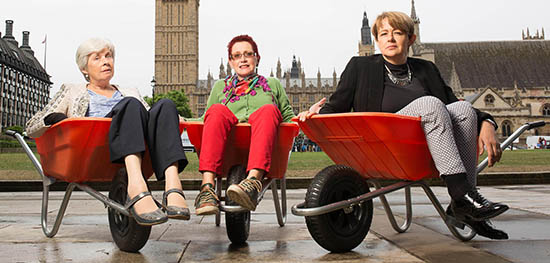 WHEN it comes to getting the right wheelchair at the right time, Liverpool’s Wheelchair Service leads the way.
WHEN it comes to getting the right wheelchair at the right time, Liverpool’s Wheelchair Service leads the way.
Last year, LWC launched its Wheelchair in a Day programme for children, providing them with assessments and a chair all on the same day!
The adults’ programme opened for business in May.
But it’s a completely different story for thousands of other people across the country who need a wheelchair. Many have to wait months, in some case almost a year, for appointments.
To try and improve things, the NHS have launched a new National Wheelchair Charter – and want as many people as possible to support it.
The Charter, which is part of the National Right Chair Right Time Right Now Campaign, encourages MPs, Clinical Commissioning Groups, and the general public to pledge their support to the campaign, and to take positive action to help bring about improvements to local wheelchair services.
The Charter was launched by Paralympian legend Baroness Tanni Grey-Thompson. But it’s been blasted by Sir Bert Massie, one of the UK’s leading disability campainers . . .
EIGHT hundred years years after King John signed the Magna Carter (or Great Charter) we have the new Wheelchair Charter produced by the NHS Wheelchair Alliance.
It took 18 months to produce but if disabled people hope this Charter will give new rights they will be disappointed.
A charter is a written statement of the rights of a specified group of people, according to the Compact Oxford Dictionary.
The Wheelchair Charter contains no rights but is instead a list of 10 pledges that users and the various providers of the wheelchair service are invited to sign and support.
It states: We pledge our commitment to:
1) A person centred service that works in partnership with service users and their carers and makes the user/carer voice central to any design, innovation and service change.
2) Equality of access and provision for all, irrespective of age or postcode and including essential user skills training as standard.
3) Entry to service via referral from an appropriately skilled professional. The time from referral to delivery will be at least within the constitutional right of 18 weeks with further substantial improvements by 2016/17 for all people using the service.
4) Assessments for all wheelchairs and associated postural support within nationally mandated timescales and priorities taking into account all aspects of individual needs including those of carers.
5) Establishing regular reviews with the user/carer according to their individual needs.
6) Prescriptions which take into account the current and future needs for all adults and children including those of carers.
7) Delivery, maintenance and emergency backup provided to nationally mandated timescales.
8) Innovative and flexible budgeting working with key partners to strengthen integration across health, social care, work and education, enabling the accommodation of individual needs, independence, health and wellbeing.
9) Recruitment of qualified staff in respect of numbers and skills, with support for on-going development and training.
10) Supporting clinicians, manufacturers and independent organisations working together to develop innovative, affordable products and solutions.
The Charter seems to preclude self-referral, which is something of an oversight and represents a step backwards.
It would be understandable if people thought that it stated no more than the basic level of service that should be provided – but the disabled person has no right to the right wheelchair at the right time.
How will we know whether the Charter is working? It contains no way to measure progress.
Happily the Community Interest Company, Community Code of Practice Scheme (CECOPS), which I chair, has already produced a guide outlining how the wheelchair service could operate and sets clear targets that should be met.
The Charter on its own will not make much difference but linked with a set of firm standards it would result in improved services.
In the meantime the NHS should not have to campaign to improve the wheelchair service. It should impose standards that provide an excellent service.
The Charter has the value that it has helped create a conversation about the wheelchair service but that is a long way from providing a good service.
You can pledge your support to the Wheelchair Charter and campaign online at:
www.rightwheelchair.org.uk

